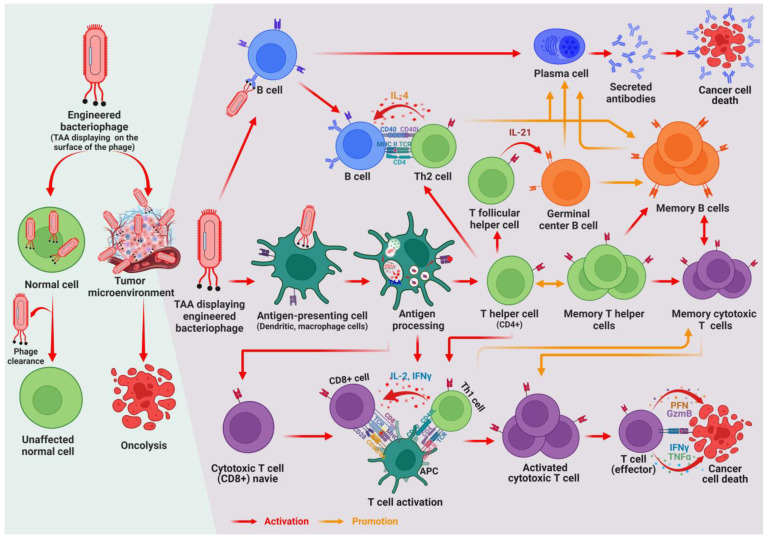Figure 2.
Schematic illustration of the impact of engineered phages on both normal and cancer cells. Phages do not affect normal cells as they do not exhibit innate mammalian or human cell tropism. However, when a phage is engineered to display the cancer antigen on its surface, it triggers an immune response that destroys cancer cells to treat the tumor. Upon encountering a phage with surface-displayed antigens, antigen-presenting cells (APCs) phagocytose and decompose the phage. The APCs fragment the antigen into smaller peptides, which are then presented on their surface by major histocompatibility complex class II (MHC-II) molecules. The presented antigens activate various types of cells, including CD4+ T helper cells, B cells, and CD8+ cells. B cells differentiate into plasma cells that produce antibodies, which destroy cancer cells. Meanwhile, T helper cells differentiate into subtypes with specific functions, such as Th2 cells that help mature humoral responses and T follicular helper cells (Tfh), which are important for the maturation of memory B cells and high-affinity antibody-producing plasma cells with long life. Another subset of CD4+ T cells become memory T helper cells. Th1 T helper cells play a crucial role in forming cellular responses by interacting with APCs to activate CD8+ cells or cytotoxic T lymphocytes (CTLs), which cause the apoptosis of cancer cells. Memory cytotoxic T cells also restore the CTL response by contact with secondary antigens.

